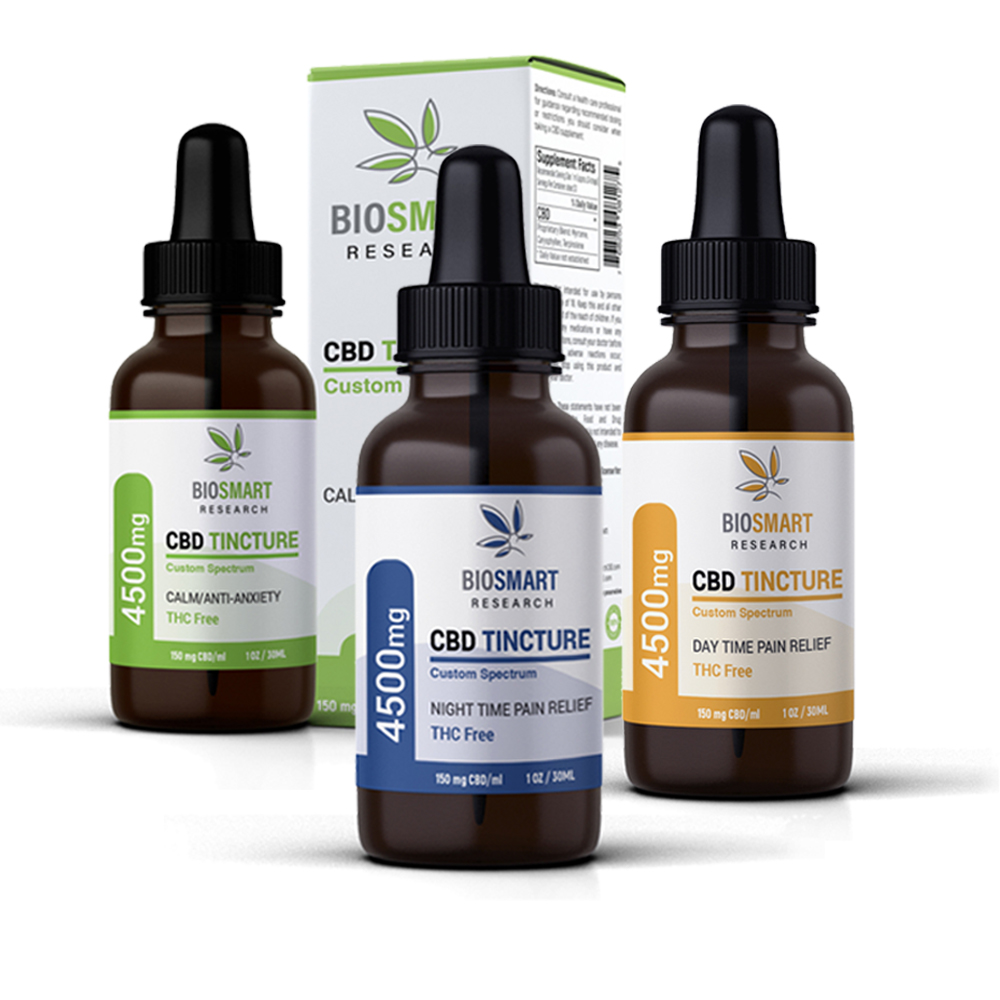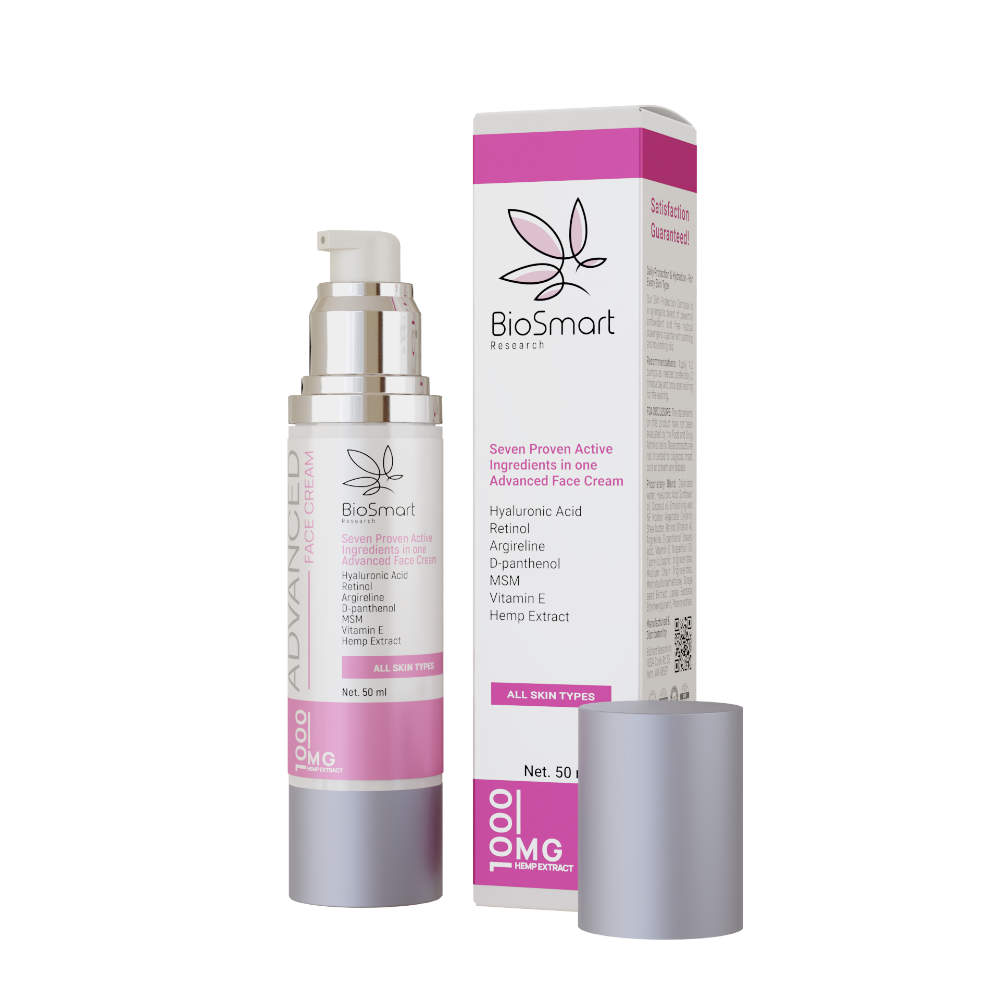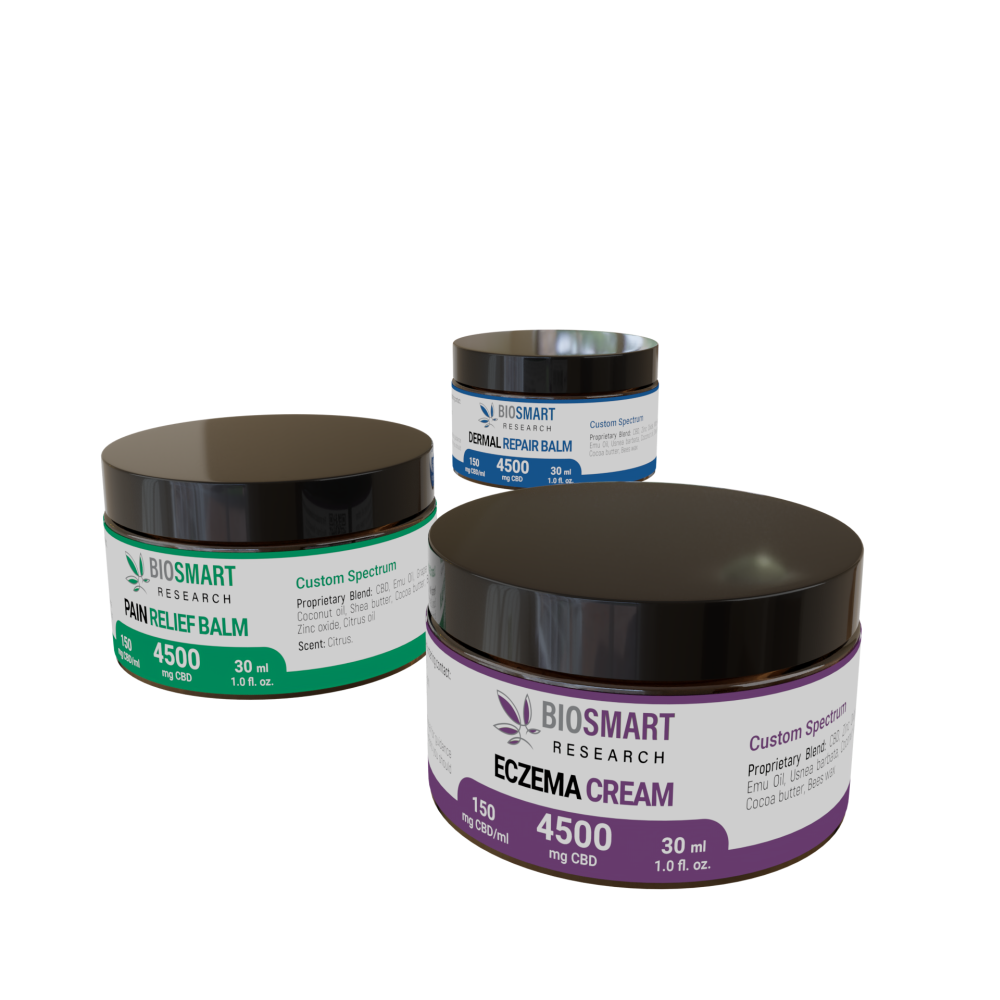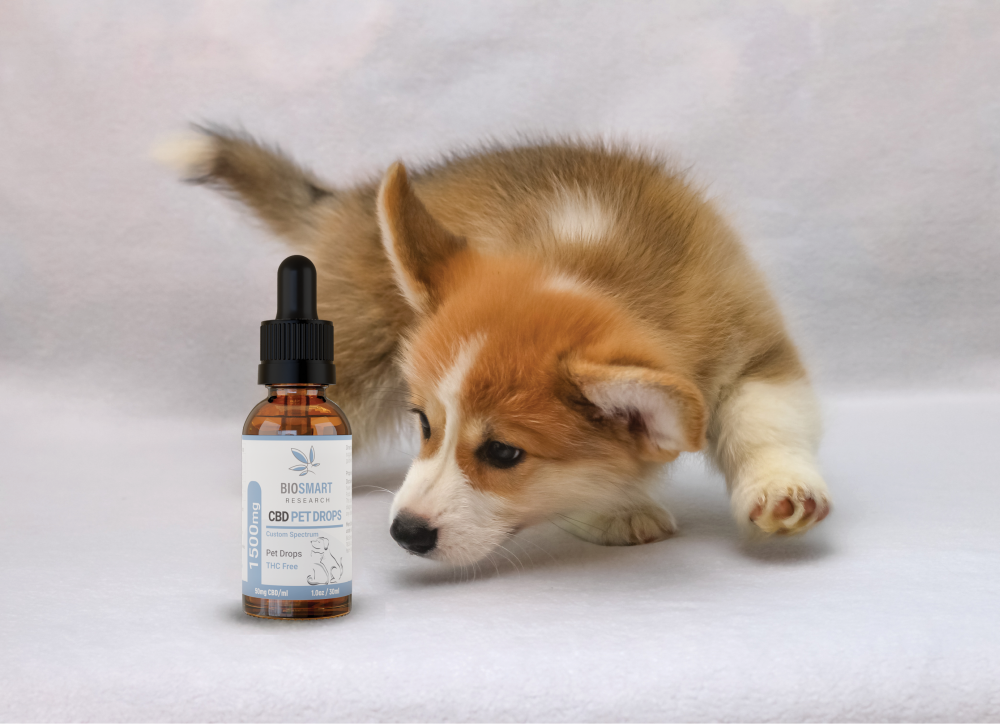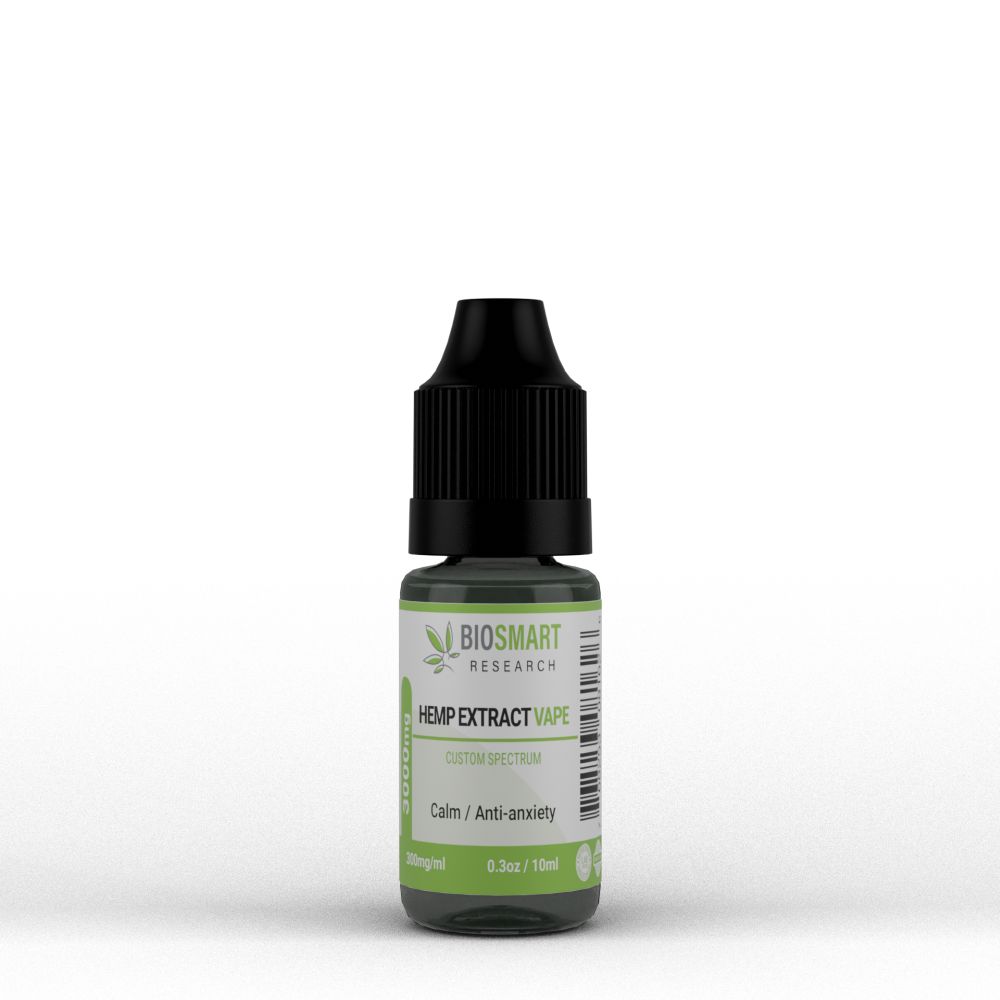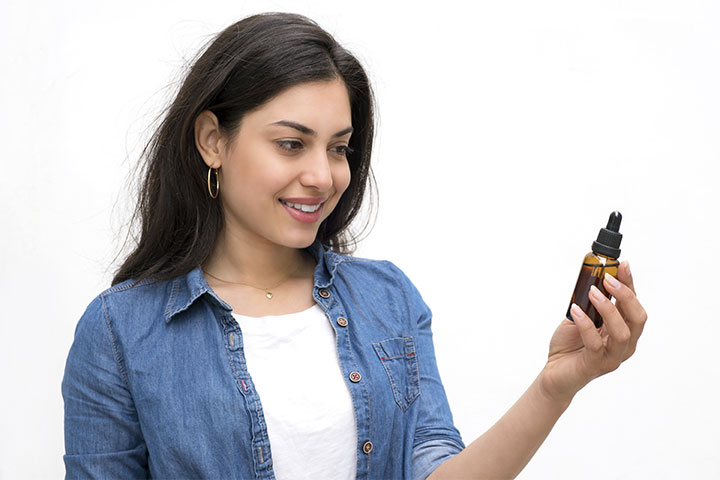Calculating the Potency of CBD Oil Drops
To convert your desired dose in milligrams to milliliters or drops, you need to know the potency of the product that you’ll be using. The potency of CBD oil drops (tinctures) can vary widely and is commonly expressed in terms of milligrams (mg) of CBD per milliliter (ml). Most CBD distillates contain an excessive amount of THC so they are diluted out by adding other carrier oils (hemp, oil, PG, VG, MCT, etc) until the total THC amount is less than .3%. That is why most CBD full-spectrum distillates average 50grams per milliliter or less (50mg/ml).
Generally, a product with less than 15 mg/ml is considered low-potency. A product with between 15-49 mg/ml is regarded as standard potency, and a product with 50 mg/ml or more is considered high-potency. You’ll need to take more of a low-potency product compared to a high-potency one to achieve the same dosage level.
To calculate the potency of your product, just divide the total number of milligrams of CBD in the bottle by the total amount of liquid in milliliters. Both of these numbers can be commonly found on the product label or the company’s website.
Many CBD products are too diluted to be any good
The CBD industry is self-regulating. By that, we really mean that it’s currently unregulated by the U.S. Food & Drug Administration. As a result, the information on CBD product labels can vary from brand to brand. This lack of consistency can make it hard for users who want to compare the CBD products of different brands.
But in most cases, the product label can still provide some very useful information. The purpose of this article is to help you understand the key elements of CBD product labels so you can make the buying and usage decisions that are right for you.
What Will CBD Product Labels Tell You?
The label of your CBD product will normally give you the following pieces of information:
- Amount of total CBD in the product
- The potency of the product
- Product type (full spectrum, broad-spectrum or isolate)
- Serving size
- List of ingredients
- Batch number
In most cases, the CBD product label will tell you the total amount of CBD in the product. This is commonly expressed as the amount of CBD in milligrams. Usually, you will see this as the big number right on the front label. This is the amount of CBD in the entire bottle. Most CBD oil tinctures range in amount from 250 milligrams to 3000 milligrams.
It’s important to know that the total amount of CBD in the bottle is not a measure of the product’s strength, or potency, on its own. The potency is also based on the size of the bottle.
- What is the size of the CBD oil bottle in milliliters? (most bottles are either 15ml or 30ml; 1 ounce = 30ml)*
- How many total milligrams of CBD is in the bottle?*
Divide the total number of mg’s in the bottle by the number of ml’s in the bottler (30ml =1oz)
General information and citations from health care professionals for further studies
The following excerpt is taken from psychology today by Peter Bongiorno ND, LAc. See the link below to reference the complete article.
About 20 percent of the population suffers from some form of anxiety. If you have anxiety, you may be looking for a new way to relax your body and mind. Many of my patients and followers on Twitter and Facebook have reached out to ask me whether CBD oil is the newest snake oil, or whether can it really help ameliorate symptoms of anxiety without causing side effects.
What is CBD oil?
Cannabidiol (CBD) oil is a natural plant-based oil that contains phyto (plant) chemicals called cannabinoids. Cannabinoids are “feel good” molecules naturally made by the body when we are feeling relaxed and secure or involved in something that makes us happy, like hugging someone we care about or sitting down to a meal we are looking forward to. Cannabinoids are also released when we sleep well and exercise. Cannabinoids bind to little docking stations in our bodies called cannabinoid receptors that help stimulate those feel-good responses. Discovered in 1992, the main cannabinoid molecule is called anandamide, which is translated from the Sanskrit as “bliss molecule.”
The cannabinoid system is key to helping the body keep itself in balance. This system ensures our stomach and intestines run well, keeps inflammation down, and modulates pain while helping to maintain our mood in a good place. Research suggests the cannabinoids from CBD can stop the breakdown of anandamide. When we retain more anandamide in our body, there’s more bliss.
Will CBD oil make me high, like marijuana?
No, it will not. I tell my patients if you are looking to feel high, then you will be disappointed. Supplemental CBD oil comes from the hemp plant. Hemp is a cannabis plant and a close cousin of marijuana. However, CBD from hemp has practically no tetra-hydro-cannabinoids (THC). THC is the substance in marijuana that has psychoactive effects and can give you a high. In fact, a number of studies on CBD showed that CBD itself can counter the negative effects of THC—including appetite issues, weight gain, and paranoia.
Is CBD oil legal?
CBD that comes from hemp is legal in all 50 states. As I mentioned in the last paragraph, CBD has no effective amount of THC. There is a tiny bit, but it is not enough to cause any psychoactive effects. As a result, there are none of the legal concerns associated with marijuana.
Is CBD effective for mental health challenges?
For decades, the World Health Organization’s expert committee on drug dependence has offered a long list of conditions that CBD may benefit. Research studies on both animals and humans have shown that CBD may help lower feelings of isolation. It seems CBD can calm the brain and support the hippocampus, which is a brain area important for healthy emotion and memory.
How much CBD oil should I take?
Customers usually start on a minimum dose of 15mg of CBD once or twice a day. This oil is best taken with food. Instead of self-prescribing, I strongly recommend you work with a practitioner knowledgeable in natural medicine who is experienced with CBD, especially if you are taking other medications and/or if you have mental health symptoms that could be severe.
How about the CBD beverages and foods that are so popular?
Right now, many companies are trying to fill their shelves with CBD-infused products. My guess is that the vast majority of these are not of good quality and may contain little to no CBD. If you are going to use CBD oil as a supplement for mental health, ask your practitioner for a high-quality version that you can take in a prescribed dosage. Don’t try to get it through other products where the amount and quality are not well understood.
Remember: General anxiety support
In my books, I always recommend not simply taking supplements for anxiety, but making dietary and lifestyle changes and adopting stress-relieving rituals and therapies to bring full healing to your body. Also, visit with your doctor regularly or when issues pop up. While CBD is a very good supplement, I find its power is enhanced when combined with natural modifications.
Credits:
Peter Bongiorno is a naturopathic doctor and the author of Healing Depression: Integrated Naturopathic and Conventional Treatments.
References
Research cited:
Beale C. et al. Prolonged Cannabidiol Treatment Effects on Hippocampal Subfield Volumes in Current Cannabis Users. Cannabis and Cannabinoid ResearchVol. 3, No. 1. Published Online:1 Apr 2018
Bongiorno PB. CBD for Mental Health. Naturopathic News and Reviews. in press.
Crippa JA, et al. Neural basis of anxiolytic effects of cannabidiol (CBD) in generalized social anxiety disorder: a preliminary report. J Psychopharmacol. 2011 Jan;25(1):121-30
Croxford JL, Yamamura T. Cannabinoids and the immune system: potential for the treatment of inflammatory diseases? J Neuroimmunol. 2005 Sep; 166(1-2):3-18.
Dasgupta A. Chapter 10. Laboratory methods for measuring drugs of abuse in urine. in Alcohol, Drugs, Genes and the Clinical Laboratory An Overview for Healthcare and Safety Professionals. Academic Press. 2017, Pages 167-191
FDA approves first drug comprised of an active ingredient derived from marijuana to treat rare, severe forms of epilepsy. https://www.fda.gov/newsevents/newsroom/pressannouncements/ucm611046.htm accessed on August 13, 2018.
Hahn B. The Potential of Cannabidiol Treatment for Cannabis Users With Recent-Onset Psychosis. Schizophr Bull. 2018 Jan 13;44(1):46-53.
Leweke FM et al. Cannabidiol enhances anandamide signaling and alleviates psychotic symptoms of schizophrenia. Transl Psychiatry. 2012 Mar 20;2:e94. doi: 10.1038/tp.2012.15.
Lewis M. CBD for Head Trauma. Integrative Medicine for Mental Health. Presentation. September 2018. Dallas, Texas.
McGuire P1, et al. Cannabidiol (CBD) as an Adjunctive Therapy in Schizophrenia: A Multicenter Randomized Controlled Trial. Am J Psychiatry. 2018;175(3):225-231.
https://herb.co/marijuana/news/cbd-psychosis-schizophrenia accessed May 22, 2018
Martin-Santos R, et al. Acute effects of a single, oral dose of d9-tetrahydrocannabinol (THC) and cannabidiol (CBD) administration in healthy volunteers. Curr Pharm Des. 2012; 18(32):4966-79.
Perucca, E. Cannabinoids in the Treatment of Epilepsy: Hard Evidence at Last? J Epilepsy Res. 2017 Dec; 7(2): 61–76.
Thompson, D. CBD Oil: CBD Oil: All the Rage, But Is It Safe & Effective? https://www.webmd.com/pain-management/news/20180507/cbd-oil-all-the-rage-but-is-it-safe-effective#1
Zuardi AW, et al. Cannabidiol monotherapy for treatment-resistant schizophrenia. J Psychopharmacol. 2006 Sep; 20(5):683-6.

